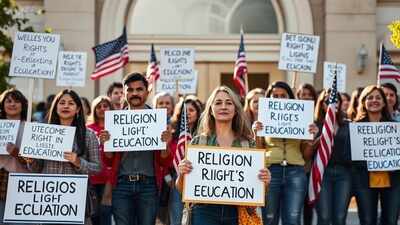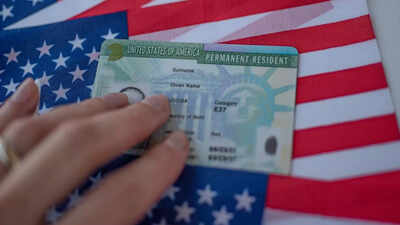Can teachers opt out? What Mahmoud v. Taylor means for freedom of belief in schools

In a significant decision on education and religious rights, the US Supreme Court ruled in favour of parents in Mahmoud v. Taylor, a case involving the Montgomery County Public School District in Maryland. The case centred on whether parents could opt their children out of lessons involving LGBTQ+-themed storybooks due to religious objections.The 6–3 ruling sided with parents who argued that their First Amendment right to the free exercise of religion had been violated when the district removed an opt-out provision. The Court found that failing to provide such an option imposed an undue burden on religious freedom.Details of the case and the parties involvedThe case was brought by a group of parents from various religious backgrounds, including Ukrainian Orthodox, Catholic, and Muslim communities. These parents objected to the inclusion of books featuring LGBTQ+ themes in the primary school curriculum for children aged five to eleven. They requested advance notice of when the books would be used in class and the ability to withdraw their children from those lessons.Montgomery County Public Schools had introduced a broader curriculum incorporating storybooks that addressed race, gender, sexual orientation, and other identities, stating the goal was to foster inclusivity and awareness. The school district argued that the inclusion of diverse narratives aimed to affirm the existence and rights of various identities.Legal arguments and constitutional basisThe petitioning parents relied on previous Supreme Court precedents, such as West Virginia State Board of Education v. Barnette and Wisconsin v. Yoder, both of which supported parental authority in the religious upbringing of their children. They contended that without the ability to opt out, the school was compelling their children to participate in lessons conflicting with their religious beliefs.The school district maintained that it was not infringing upon religious freedom but promoting a diverse and respectful learning environment. It argued that allowing opt-outs could undermine the purpose of the curriculum and exclude certain student identities from classroom recognition.Supreme Court ruling and its provisionsThe Supreme Court held that the school district’s actions constituted an undue burden on the parents’ religious rights under the First Amendment. The ruling mandates that schools must provide parents with advance notice of when such materials will be used and allow them to withdraw their children from those specific sessions if they object on religious grounds.Broader implications and future considerationsAssistant Professor of Law Jeremiah Chin explained that the ruling may have far-reaching implications. He noted that while the decision appears narrow, it follows a trend in recent Court rulings that expand the Free Exercise Clause, allowing individuals increased authority to challenge government actions on religious grounds.The case also raises questions about the rights of children, though the ruling focused exclusively on the conflict between parents and the school district.TOI Education is on WhatsApp now. Follow us here.





